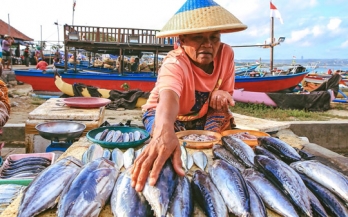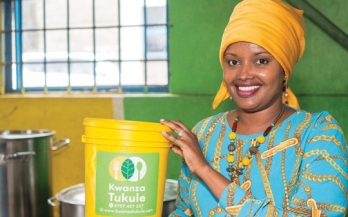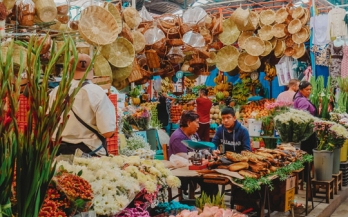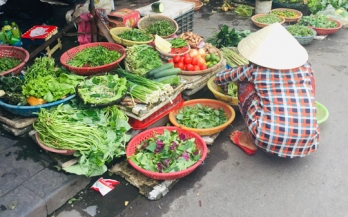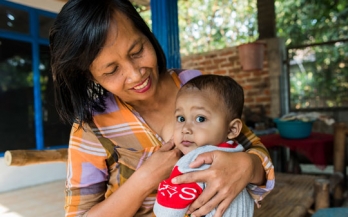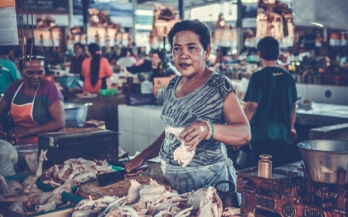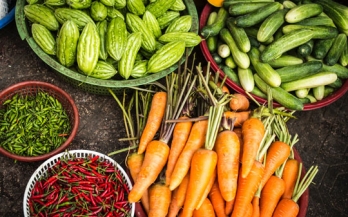Recognising that the problem of food loss in the fish value chain cannot be tackled in siloes and requires coordinated action, the Indonesia Postharvest Loss Alliance for Nutrition (I-PLAN) was created in 2018 to bring together the expertise and resources of the Global Alliance for Improved Nutrition (GAIN), the Ministry of Health, Ministry of Marine Affairs and Fisheries and a diverse range of business, academic and civil society organisations.
Food loss is a big challenge in Indonesia, with loss of nutritious fresh fish particularly significant. Indonesia is ranked second in the world for food loss1, suffering a yearly loss of approximately 13 million tons2, equating to 300 kg per person per year and comprising about 20% of agricultural crops and 30%3 of fisheries products.
Based on an external assessment, this working paper summarises PLAN’s work in Nigeria (N-PLAN) and Indonesia (I-PLAN), impacts to date, and key learnings. The assessment indicated that PLAN has helped create influential networks, allowing diverse stakeholders to work together to address common issues related to post-harvest loss.
In low-income countries, poor dietary diversity is driven in large part by the low availability and affordability of nutritious foods like fresh fruits and vegetables, dairy products and other animal sourced foods. In a recent assessment, GAIN determined that small-and medium-sized enterprises (SMEs), or small and mighty enterprises as GAIN likes to call them, produce, process or sell up to 70% of nutritious food sold in low-income markets in Africa.
These document series summarise some rapid assessments undertaken by the Global Alliance for Improved Nutrition (GAIN) to understand early impacts of the COVID-19 coronavirus pandemic on food systems in a set of low- and middle-income countries where GAIN works (Bangladesh, India, Pakistan, Indonesia, Mozambique, Ethiopia, Kenya, Tanzania, Rwanda, and Nigeria).
These document series summarise some rapid assessments undertaken by the Global Alliance for Improved Nutrition (GAIN) to understand early impacts of the COVID-19 coronavirus pandemic on food systems in a set of low- and middle-income countries where GAIN works (Bangladesh, India, Pakistan, Indonesia, Mozambique, Ethiopia, Kenya, Tanzania, Rwanda, and Nigeria).
These document series summarise some rapid assessments undertaken by the Global Alliance for Improved Nutrition (GAIN) to understand early impacts of the COVID-19 coronavirus pandemic on food systems in a set of low- and middle-income countries where GAIN works (Bangladesh, India, Pakistan, Indonesia, Mozambique, Ethiopia, Kenya, Tanzania, Rwanda, and Nigeria).
This paper describes an innovative behaviour change communication project, implemented as part of the Baduta project, including rationale and early impacts. Baduta was a multi-component project developed by the Global Alliance for Improved Nutrition (GAIN), together with partners, to improve maternal and infant nutrition.
This report aims to give insight into the opportunities for tea supply chain actors to improve nutrition security. It presents the Nutrition Tea Project implemented in Indonesia and shows the lessons learned and successes reached because of this intervention.
The BADUTA Programme's objective was to reduce childhood stunting in the East Java province in Indonesia. This report presents findings from baseline and endline cross-sectional surveys conducted as part of an impact evaluation of the BADUTA Programme.
